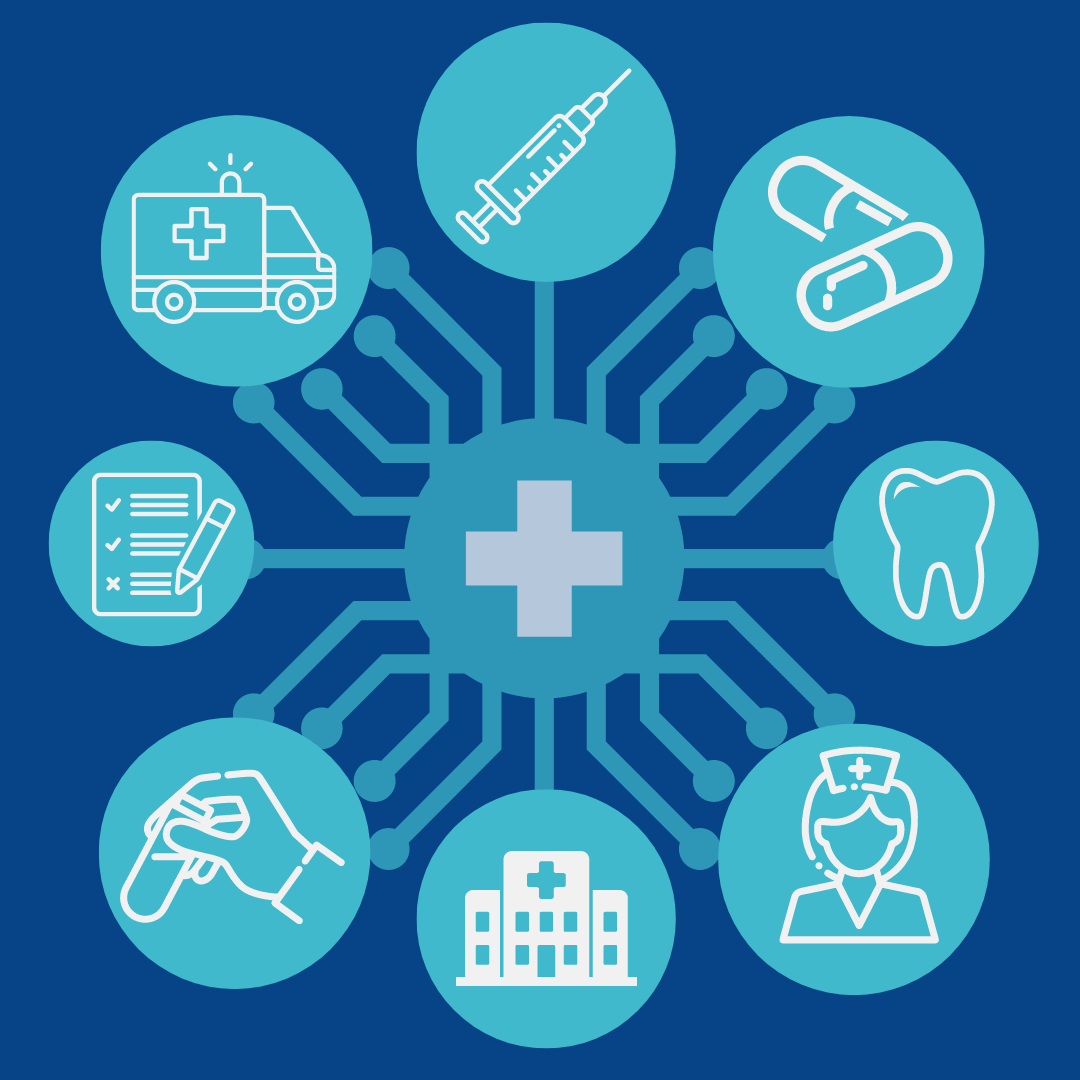
Although blockchain technology was brought into the public domain by cryptocurrencies like Bitcoin, it now appears to assume a position in many sectors including health. The new technology is expected to secure data and smoothen processes, some of the greatest challenges facing the healthcare sector. Securing integrity, confidentiality of medical records, accessibility, blockchain will transform care for patients and administrative efficiencies.
Understanding Blockchain Technology
More formally, a blockchain is decentralized ledger technology recording transactions across many computers. These transactions are secured by cryptographic algorithms and are immutable and transparent. Every block has a timestamp as well as the link of the previous block, continuously forming a chain of blocks that hold records, which are all unchangeable and verifiable.
Key Features of Blockchain
- Decentralization: Eliminates the need for a central authority, reducing the risk of data breaches.
- Immutability: Ensures that once data is recorded, it cannot be altered or deleted.
- Transparency: Allows all participants to view the transactions, enhancing trust and accountability.
- Security: Uses cryptographic techniques to secure data, making it highly resistant to hacking.
The Importance of Data Security in Healthcare
Data security in the health industry remains one of the hottest issues. Medical records contain highly sensitive information, including a patient’s case history, diagnosis, and treatment plan. Breaches can cost patients their identity—thievery, fraud—and other harmful activities against patients’ privacy and trust. Conventional systems of data storage are prone to cyber-attacks, while blockchain provides a robust solution in this regard.
How Blockchain Secures Healthcare Data
Blockchain secures healthcare data with encryption and decentralized storage. Every transaction or entry of data gets encrypted, then connected to the one before it, forming an unchangeable chain. Therefore, making it very, very hard for any user who isn’t authorized to change these records. Besides, since blockchain itself is decentralized, information gets stored on different nodes; now, cybercriminals will find it harder to concentrate on a particular point of failure.
Streamlining Healthcare Processes with Blockchain
Beyond securing data, blockchain can also streamline various healthcare processes, reducing administrative burdens and improving patient outcomes.
Enhancing Interoperability
One of the major problems in healthcare is the lack of interoperability across different systems and providers. Blockchain can facilitate seamless data exchange, thus allowing health providers to have access to information about a patient and share it on time and securely. This would ensure greater coordination in care and better outcomes for patients.
Simplifying Billing and Claims
In terms of healthcare processes, billing and claims are complex and error-prone. Blockchain can automate and simplify these processes, making them correct and ensuring claims get through faster. Smart contracts, in a sense self-executing contracts where the main terms of the agreement are directly written into code, could be applied to automate insurance claims as well. This considerably reduces paperwork between parties, leading to savings on administrative costs.
Supply Chain Management
Blockchain can aid transparency and traceability within the pharmaceutical supply chain. If all transactions have been recorded in the blockchain, it helps to track down more easily where the drugs have come from and how they moved: everything that makes it harder for fake medications and ensures that patients get real products. Also, check Data Analysis.
Real-World Applications of Blockchain in Healthcare
Several healthcare organizations are already exploring and implementing blockchain solutions to improve their services. Here are a few examples:
Medicalchain
Medicalchain uses blockchain technology to store health records securely and enables patients to share their data with doctors, hospitals, and other healthcare professionals. This ensures that healthcare providers have access to accurate and up-to-date information, improving the quality of care.
Guardtime
Guardtime is working with the Estonian government to secure the health records of its citizens using blockchain technology. This initiative has enhanced the security and integrity of the data, making Estonia a leader in digital healthcare.
IBM Watson Health
IBM Watson Health is leveraging blockchain to create a more efficient and secure healthcare ecosystem. By integrating blockchain with its cognitive computing capabilities, IBM aims to improve data sharing, patient outcomes, and overall efficiency in the healthcare sector.
Challenges and Future Directions
While blockchain holds enormous potential for healthcare, it is not without its challenges. Scalability and following all the regulatory compliances before integration with prior systems are some of the obstacles that ought to be dealt with. Yet, as technology matures further and more organizations adopt blockchain solutions, these challenges can be expected to be overcome.
The Future of Blockchain in Healthcare
The future of blockchain in healthcare appears bright. As more and more healthcare providers, insurers, and patients slowly recognize the efficiency that blockchain can give, its adoption will surely increase. Future possible developments may include:
- Advanced Patient Portals: Empowering patients with more control over their health data.
- Personalized Medicine: Improve accuracy and availability of patient data to tailor treatments.
- Global Health Networks: Facilitating international collaboration and data sharing.
Conclusion
Blockchain is expected to drive the healthcare industry, allowing for the systematic, efficient, and secure processing of data; it guarantees a safe, transparent, and much less bureaucratic process in steering health-related information towards better results for patients nowadays and reducing administrative burdens. This technology will continue to evolve and gain trust, defining the future of health care.
What is blockchain technology?
Blockchain is a decentralized ledger technology that records transactions across multiple computers in a secure and transparent manner.
How does blockchain improve data security in healthcare?
Blockchain improves data security by using encryption and decentralized storage, making it difficult for unauthorized users to tamper with medical records.
Can blockchain streamline healthcare processes?
Yes, blockchain can streamline healthcare processes by enhancing interoperability, simplifying billing and claims, and improving supply chain management.
Are there real-world applications of blockchain in healthcare?
Yes, several organizations like Medicalchain, Guardtime, and IBM Watson Health are implementing blockchain solutions to enhance data security and efficiency in healthcare.
What are the challenges of using blockchain in healthcare?
Challenges include scalability, regulatory compliance, and integration with existing systems. These need to be addressed for widespread adoption.
What is the future of blockchain in healthcare?
The future of blockchain in healthcare includes advanced patient portals, personalized medicine, and global health networks, aiming to enhance patient care and data management.
Explore More :


